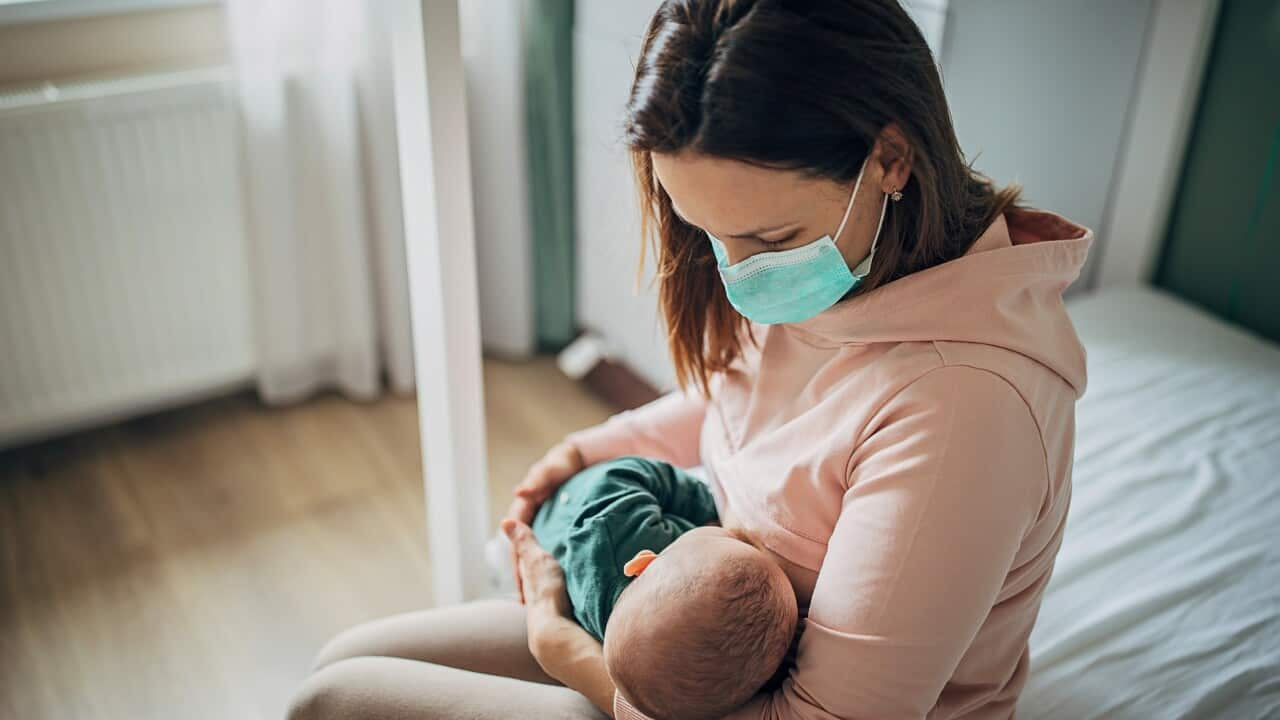Key Points
- WHO advises pregnant and breastfeeding mothers to consult their doctors for 'likely benefits'
- Australia doesn't recommend Paxlovid in pregnant, breastfeeding and women of childbearing potential
- Research from Johns Hopkins Medicine shows Paxlovid is safe in pregnancy
The World Health Organization, in its latest recommendation on 13 January, asked pregnant and breastfeeding women with non-severe COVID-19 to consider Paxlovid.
WHO suggested pregnant and breastfeeding women consult their doctors to determine whether they should take this drug due to "likely benefits and a lack of reported adverse events."
Australian women, however, will have to wait as the country's top drug regulator, the Therapeutic Goods Administration, doesn't allow Paxlovid's use in pregnant, breastfeeding mothers and women of childbearing potential.
TGA only approves the drug use in selected cohorts with underlying medical conditions.
Australia continues to maintain its stand despite the updated WHO recommendations.
Department of Health said Pfizer didn't provide data on Paxlovid use in pregnant women when TGA approved its initial application on 18 January 2022.
Therefore, use in pregnant and breastfeeding women is not recommendedAustralian Department of Health
"This is in alignment with the advice provided by the European Medicines Agency (EMA) and the UK's Medicines and Healthcare products Regulatory Agency (MHRA)."
A Western Australian government's health directive advises pregnant women or those planning a child not to take Paxlovid.
"Call your doctor straight away if you become pregnant while taking this medicine. Paxlovid may affect how birth control pills, patches and vaginal rings work," it said.
"You should use alternative contraception or an additional barrier method such as a condom while you are taking Paxlovid. Talk to your health practitioner about effective methods of birth control," it added.
Dr Nisha Khot, a Melbourne-based specialist obstetrician, however believes the Australian government will soon update its guidelines in line with the WHO recommendations and the latest studies.
"Medical professionals in Australia can't prescribe Paxlovid or any other medicine without the federal government's approval," Dr Khot said.
Paxlovid, once approved, will serve as an additional treatment option in pregnant and breastfeeding women. It will also ease their stress and anxietyMelbourne-based specialist obstetrician Dr Nisha Khot
Dr Khot said most pregnant or breastfeeding mothers in Victoria are now reporting mild COVID-19 infections.
"This could be due to the high vaccination and booster rates. That's why we can't stress the importance of COVID-19 vaccination enough," Dr Khot said.
A recent study by Johns Hopkins Medicine Research in J showed pregnant people infected with SARS-CoV-2 can safely take Paxlovid to reduce the possibility of severe disease.
The medication was well tolerated without evidence of an increase in complications affecting birthing parents or their offspring.Johns Hopkins Medicine Research
"Approximately half of the deliveries after treatment with nirmatrelvir and ritonavir (Paxalovid) were via cesarean delivery," the study noted.
The Australian government said the TGA was aware of small studies about the use of Paxlovid in pregnant women and could consider a new or updated application from Pfizer.
However, it can't compel Pfizer to send the application.
Pfizer told SBS that it doesn't have data on the safe use of Paxlovid during pregnancy and in breastfed children during lactation.
"Women of childbearing potential should avoid becoming pregnant during treatment and until after seven days after stopping Paxlovid," it said.
"Breastfeeding should be discontinued during treatment with Paxlovid and for seven days after the last dose of Paxlovid. There are no human data on the effect of Paxlovid on fertility."
SBS is committed to providing all COVID-19 updates to Australia’s multicultural and multilingual communities. Stay safe and stay informed by visiting regularly the



